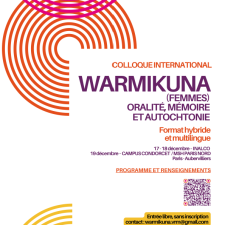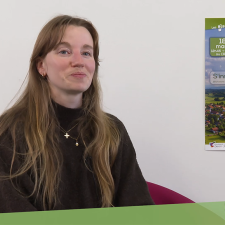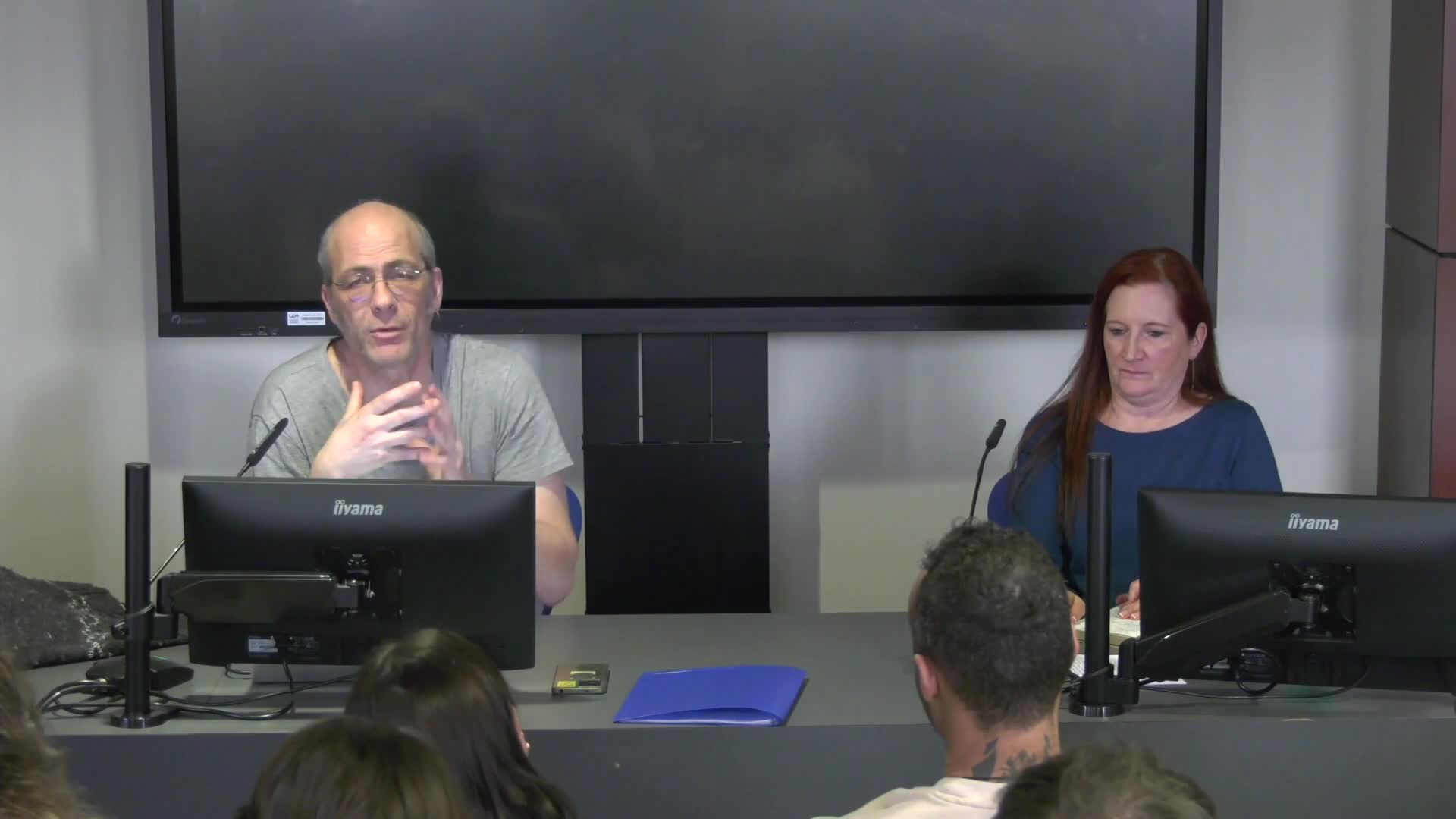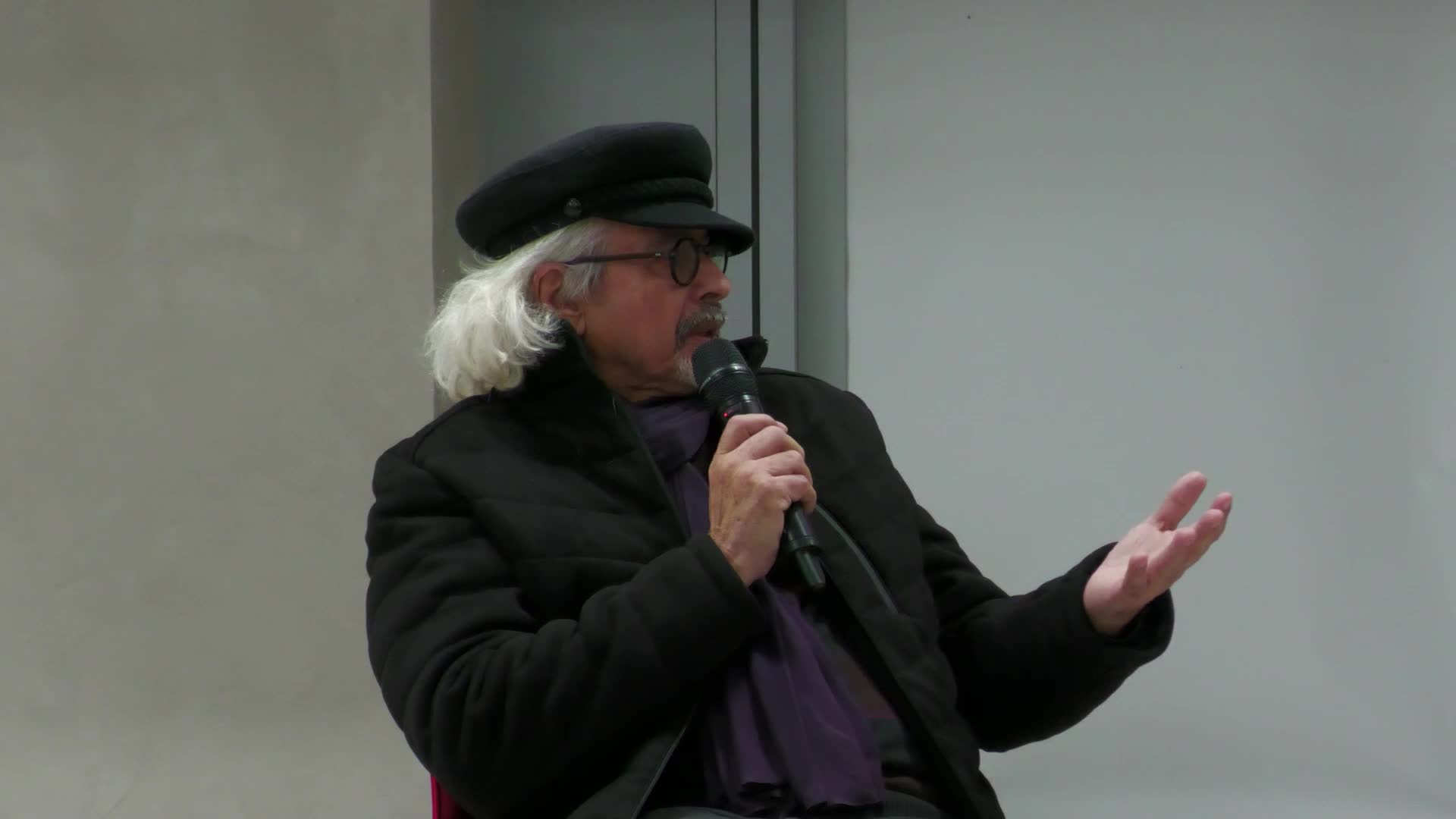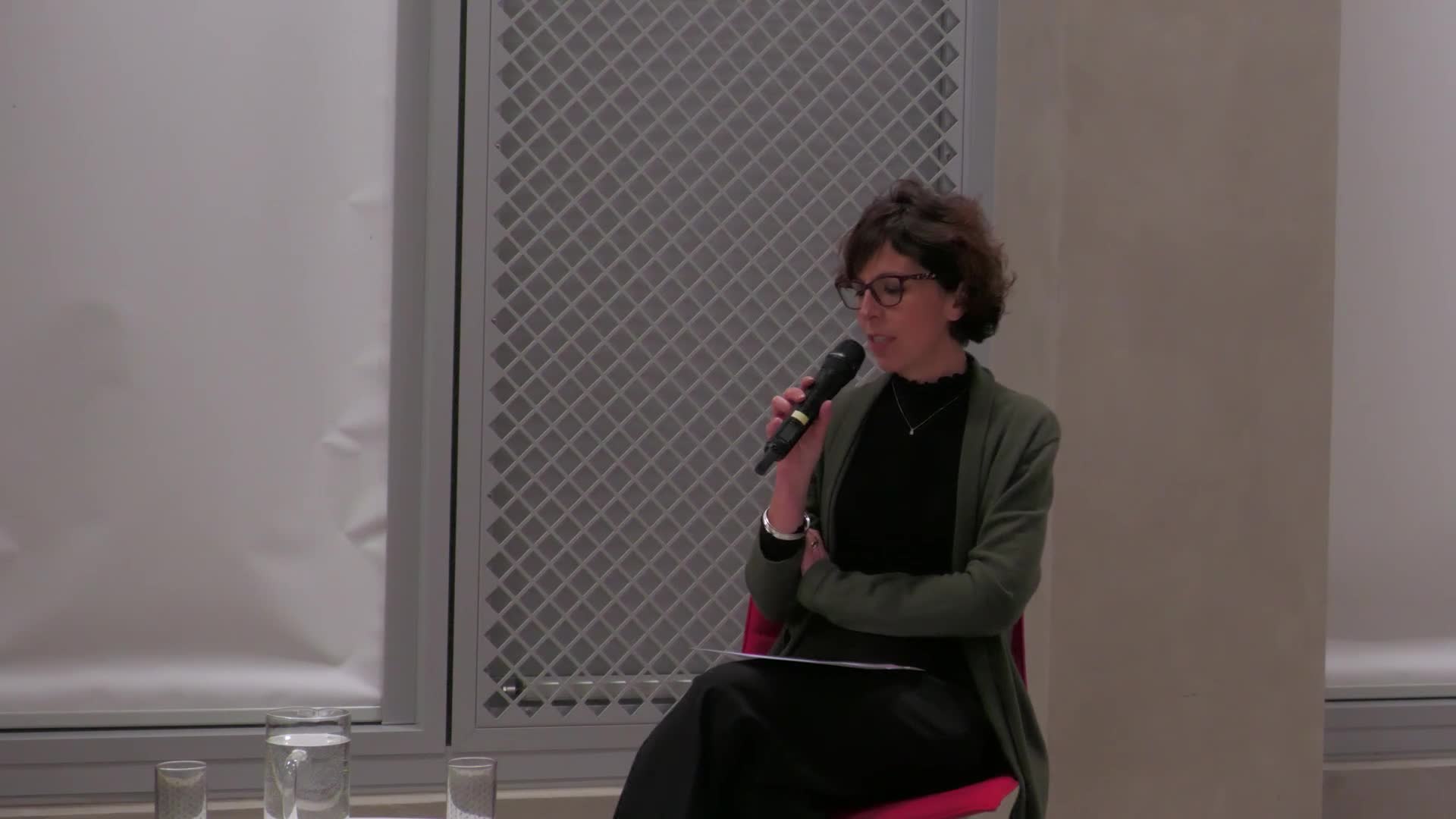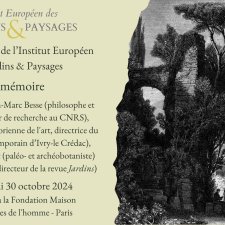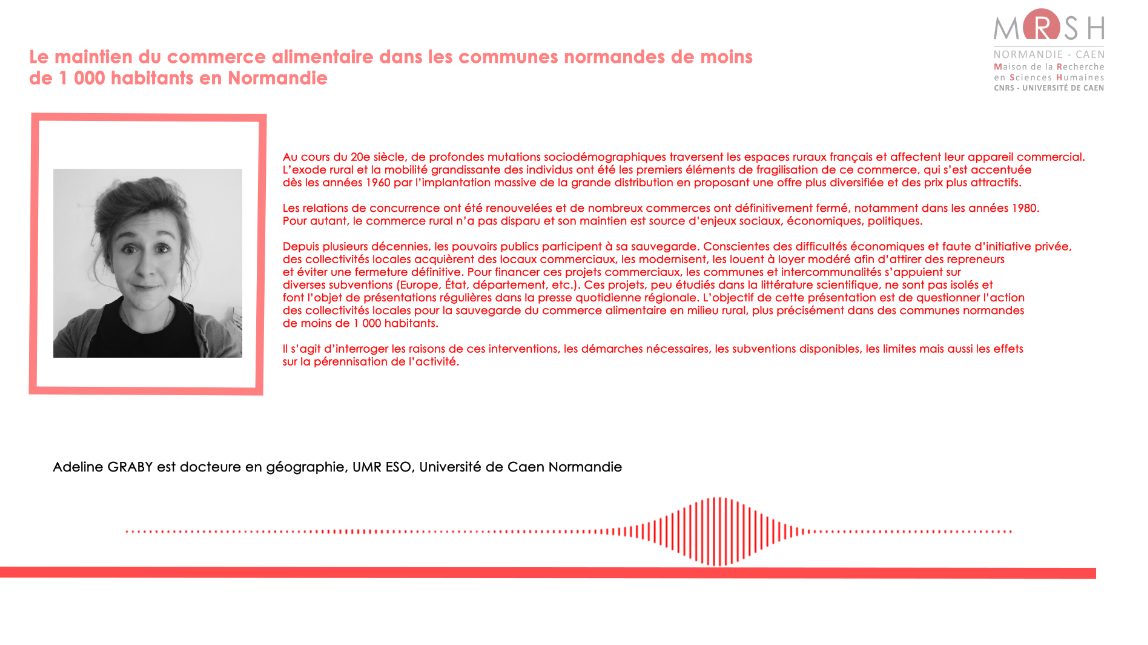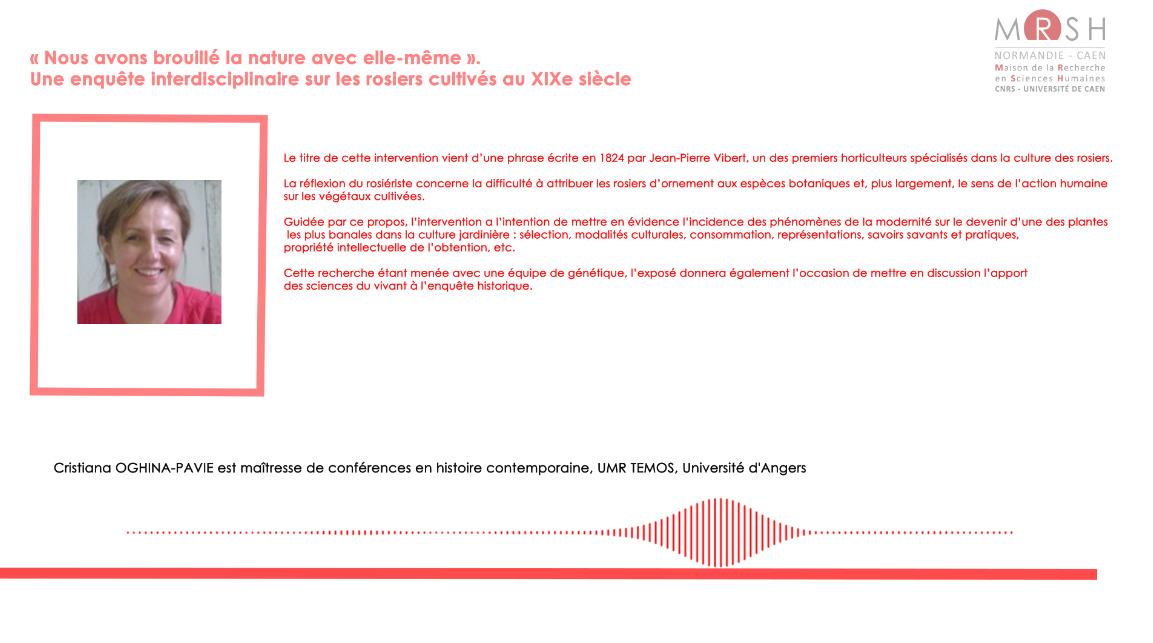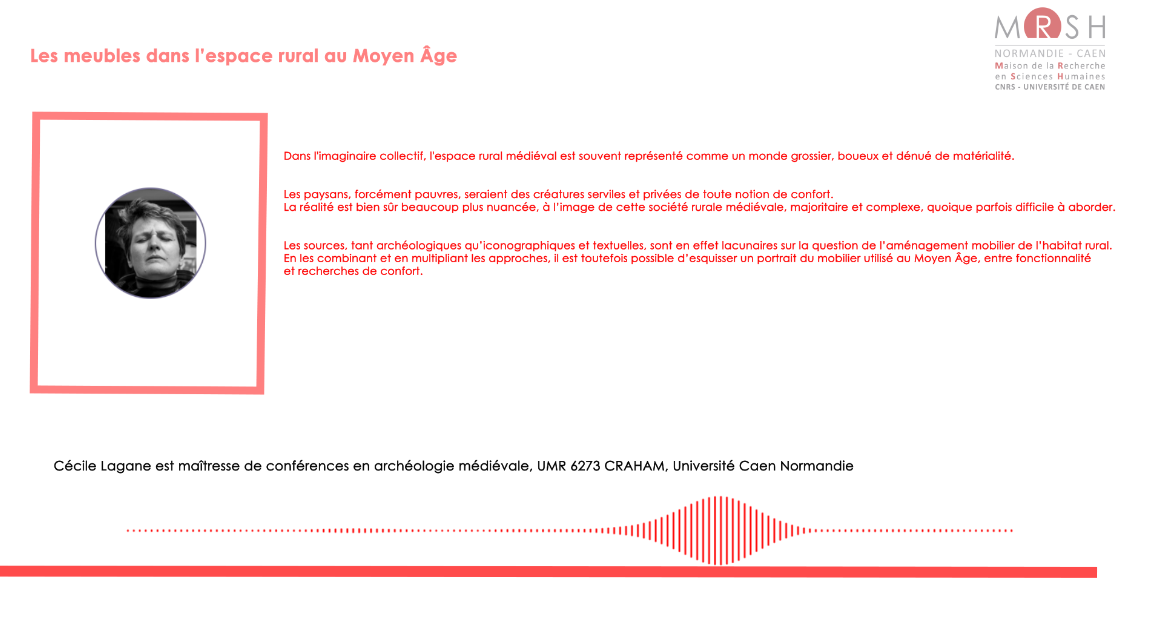Notice
MRSH Caen
Mémoire du féodalisme et émancipation paysanne dans la France du XIXe siècle
- document 1 document 2 document 3
- niveau 1 niveau 2 niveau 3
Descriptif
Cette conférence a été enregistrée dans le cadre du séminaire annuel du pôle Sociétés et espaces ruraux de la MRSH, consacré pour l'année 2015-2016 aux pouvoirs publics et sociétés rurales.
David Hopkin studied history at Churchill College, University of Cambridge, from 1985 to 1988. He returned to Cambridge in 1994 to pursue his doctorate under the supervision of Peter Burke and Bob Scribner. He was a Junior Research Fellow at Churchill College from 1997 to 1999 and lecturer, then senior lecturer, in the Department of Economic and Social History, University of Glasgow, from 1999. He joined Hertford as Fellow and Tutor in History in 2005.
Abstract
Historians of rural politicisation have followed nineteenth-century observers of the French countryside to argue that the memory of feudalism had a large influence on rural political choices. The influence of local memories, they claim, helps explain why rural voters did not behave according to the expectations of modern politics. But what memories? Neither nineteenth-century observers nor historians have provided much detail. In order to discover the contents of these memories we need to turn from the administrative archives towards the archives of oral literature. Nineteenth-century folklorists collected hundreds of legends about lords and the seigneurial regime told in rural communities. Some of these were of purely local distribution and can be related to precise historical events and persons. But many form part of a much larger, indeed international repertoire consisting of archetypal stories and motifs that could be adapted to local circumstances. In this sense it seems that peasants in many parts of France, and far beyond, shared a common, albeit 'legendary' history of feudalism: a common history in that they agreed on what happened in the past and also how those events should be interpreted. It is possible that this common history helped peasants to articulate a common identity, and that this common identity may explain peasants' ability to mobilize in order to surmount the challenges posed to small-scale family-run agriculture in a globalising world.
Sur le même thème
-
Colloque | Warmikuna (femmes) – oralité, mémoire et autochtonie
ItierCésarRomero BarriosTaniaHerreraMorganaCe colloque propose ainsi d’analyser la participation des femmes autochtones et des locutrices de langues autochtones, dans leur diversité de genre et sexuelle, aux processus sociopolitiques sur la
-
L’émergence de la grande exploitation agricole au XVIIe siècle : micro-histoire autour d'un fermier…
L’émergence de la grande exploitation agricole au XVIIe siècle : micro-histoire autour d'un fermier de l'Ile-de-France, Nicolas Delacour
-
S'installer à la campagne
LatouilleOphélieOphélie Latouille présente son travail de recherche doctorale consacré aux mobilités résidentielles vers les zones rurales et aux transitions professionnelles vers le non-salariat, dans des contextes
-
Se souvenir et continuer à se transformer. La mémoire longue d'une contre-élite ouvrière
RenahyNicolasVieillir et résister dans le monde ouvrier... Le sociologue Nicolas Renahy revient sur le parcours et le présent d'anciens militants de Peugeot à Sochaux-Montbéliard.
-
Ciné-dialogues Afrique 2024-2025 – Séance 6/8 – Talking about Trees (2019) de Suhaib Gasmelbari + J…
BruzzoneAnnaGasmelbariSuhaibCiné-dialogues Afrique 2024-2025 – Séance 6/8 – Talking about Trees (2019) de Suhaib Gasmelbari + Jamal (1981) d’Ibrahim Shaddad. Dialogue entre Suhaib Gasmelbari et Anna Bruzzone.
-
Ciné-dialogues Afrique 2024-2025 – Séance 4/8 – Par où commencer ? (2014) de Nacer Khemir. Dialogue…
BruzzoneAnnaKhémirNacerCiné-dialogues Afrique 2024-2025 – Séance 4/8 – Par où commencer ? (2014) de Nacer Khemir. Dialogue entre Nacer Khemir et Anna Bruzzone.
-
Ciné-dialogues Afrique 2024-2025. Séance 3/8 : Sarraounia (1986) de Med Hondo. Dialogue entre Abdou…
BruzzoneAnnaWarAbdoul AliCiné-dialogues Afrique 21-01-25
-
Ciné-dialogues Afrique - Deuxième séance - Camp de Thiaroye (1988) d’Ousmane Sembene et Thierno Fat…
BakabaSidiki S.BruzzoneAnnaCiné-dialogues Afrique - Deuxième séance - Camp de Thiaroye (1988) d’Ousmane Sembene et Thierno Faty Sow
-
Les Rencontres de l'Institut Européen des Jardins et Paysages
MartellaMarcoBesseJean-MarcLe RestifClaireThiébaultStéphanieRencontre du 30 octobre 2024. La mémoire
-
Le maintien du commerce alimentaire dans les communes normandes de moins de 1 000 habitants en Norm…
Au cours du 20e siècle, de profondes mutations sociodémographiques traversent les espaces ruraux français et affectent leur appareil commercial. L’exode rural et la mobilité grandissante des individus
-
« Nous avons brouillé la nature avec elle-même ». Une enquête interdisciplinaire sur les rosiers c…
Le titre de cette intervention vient d’une phrase écrite en 1824 par Jean-Pierre Vibert, un des premiers horticulteurs spécialisés dans la culture des rosiers.
-
Les meubles dans l’espace rural au Moyen Âge
Dans l'imaginaire collectif, l'espace rural médiéval est souvent représenté comme un monde grossier, boueux et dénué de matérialité.


